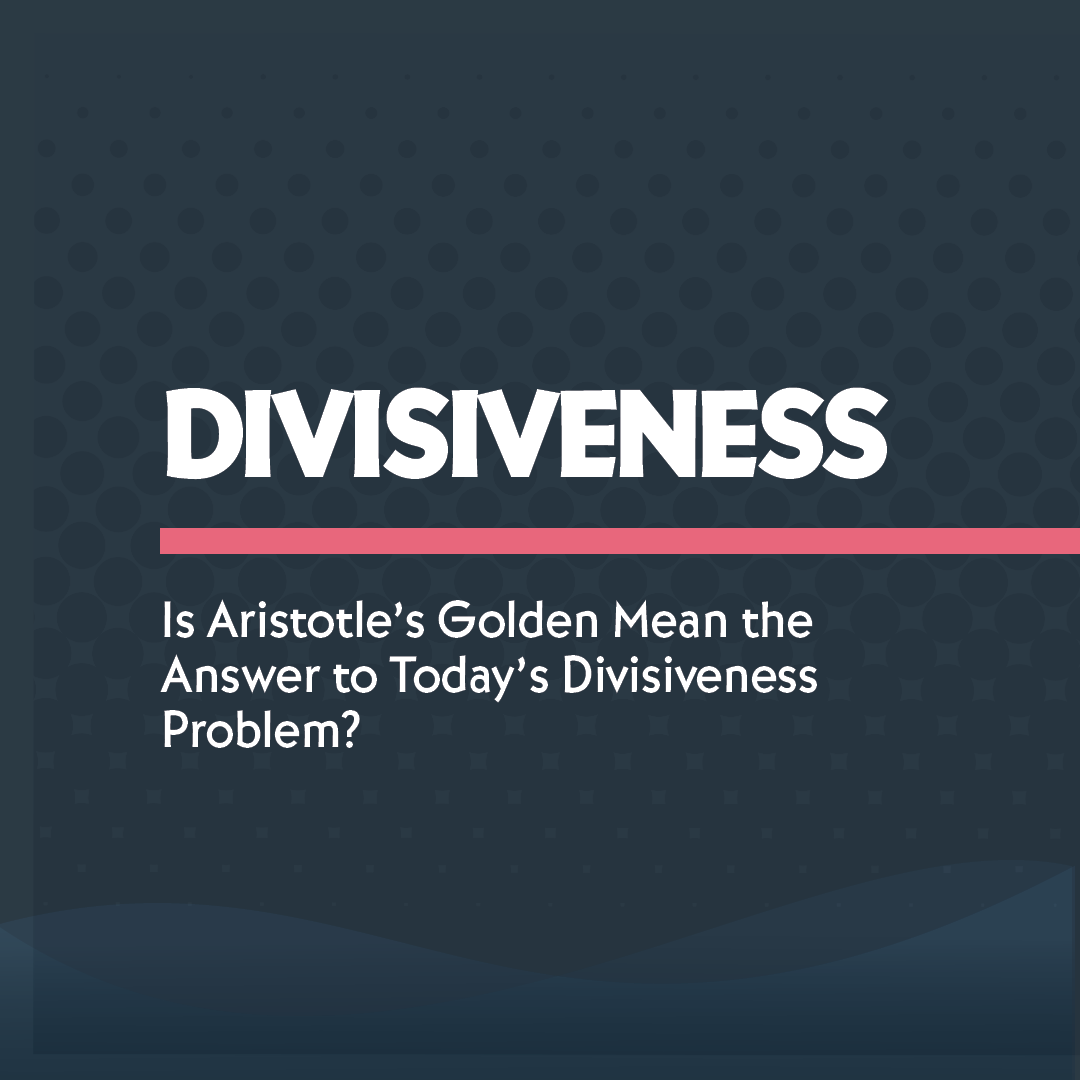Is Aristotle’s Golden Mean the Answer to Today’s Divisiveness Problem?

These days, personality assessments readily available online generate detailed reports of peoples’ thinking preferences, mindsets, and behavioral tendencies. These assessments are often used in workplace settings as learning and development resources that can increase individuals' self-awareness and increase team efficiency. Yet it was over 2000 years ago that Greek philosophers first theorized many of the foundational concepts used in analyzing human behavior. For example, Aristotle fashioned a methodology known as the “Golden Mean,” which is a technique for balancing thinking and behavior extremes. This classical method may help solve the increasing divisiveness plaguing today’s office politics and team dynamics.
Beginning with Socrates's notion that virtue is the understanding of what is good and bad for society, virtue ethics was later developed by Aristotle, who emphasized being rather than doing. In Aristotle’s view, morality derives from the character of individuals, not just their actions. As opposed to consequentialism (the goodness of outcomes), deontology (moral duty), and utilitarianism (what is most beneficial to the majority), virtue ethics treats character strength and moral virtue as central. While virtue ethics doesn’t deny the importance of good outcomes, personal duties, and usefulness, it does place higher importance on moral virtue than other ethical theories. This emphasis is because practitioners believe character strength and moral virtue are at the core of generating positive outcomes and upholding moral duties that benefit society as a whole.
 In virtue ethics, a virtue is a disposition to think, feel, or act in a positive way. As opposed to a vice, which is a disposition to think, feel, or act in a negative way. The ancient Greeks considered the dispositions of virtues and vices a complex process because they involved both the intellectual component of reasoning and the emotional component of feelings. In opposition to Plato, who viewed vices and virtues as matters of knowledge, Aristotle believed virtues included the application of appropriate emotional responses. According to Aristotle, positive thinking can be taught or formed through experiences, while positive character derives from mindfully following good habits. To accomplish this requires self-awareness of one’s thinking and self-management of one’s behavior patterns.
In virtue ethics, a virtue is a disposition to think, feel, or act in a positive way. As opposed to a vice, which is a disposition to think, feel, or act in a negative way. The ancient Greeks considered the dispositions of virtues and vices a complex process because they involved both the intellectual component of reasoning and the emotional component of feelings. In opposition to Plato, who viewed vices and virtues as matters of knowledge, Aristotle believed virtues included the application of appropriate emotional responses. According to Aristotle, positive thinking can be taught or formed through experiences, while positive character derives from mindfully following good habits. To accomplish this requires self-awareness of one’s thinking and self-management of one’s behavior patterns.
Aristotle also took this ethical theory a step further with the “Golden Mean”. According to Aristotle, character strengths and moral virtues operate on polarities that can be overused or underused in different situations. Virtues that lean too far in excess or deficiency become vices. For example, too much courage can result in recklessness, whereas not enough courage can result in becoming victimized. In this case, the imbalance of courage results in the vices (negative thinking, feeling, or acting) of recklessness and victimhood. Thus, the goal of situations is to “aim for the mean” by balancing the two extreme negative responses to achieve positive thinking, feeling, and acting as often as possible.
Over 2000 years later, Aristotle’s Golden Mean remains a powerful self-regulation method. In terms of applications, fostering positive thinking, feeling, and actions (virtues) is especially important to maintain positive relationships in life. The practice of self-awareness is especially useful in high-stress environments like workplaces, where positive relationships can quickly deteriorate into divisiveness, contributing to dysfunctional organizational culture and low employee morale.
Based on Aristotle’s Golden Mean principles, Tilt 365 has developed character strength assessments that help people identify and understand the root causes of divisiveness in workplaces. These assessments help identify character imbalances in individuals and teams that can be targeted as areas for coaching and development. For example, if leaders are too passive, they may contribute to divisiveness by not providing enough direction for team members, resulting in confusion over responsibilities. Conversely, leaders who are too aggressive may frustrate team members by not allowing them to contribute. The two qualities of passiveness and aggressiveness are examples of underuse and overuse of the quality of assertiveness.
By using Tilt 365 character strength assessments, leaders can increase self-awareness in themselves and their teams to better understand the underlying dynamics that drive their behaviors. In doing so, leaders can help prevent and reduce divisiveness in their workplace by identifying and addressing imbalanced character strengths that lead to counterproductive actions of team members.
Learn more about how Tilt365 assessments can help reduce divisiveness and mend dysfunctional teams!


